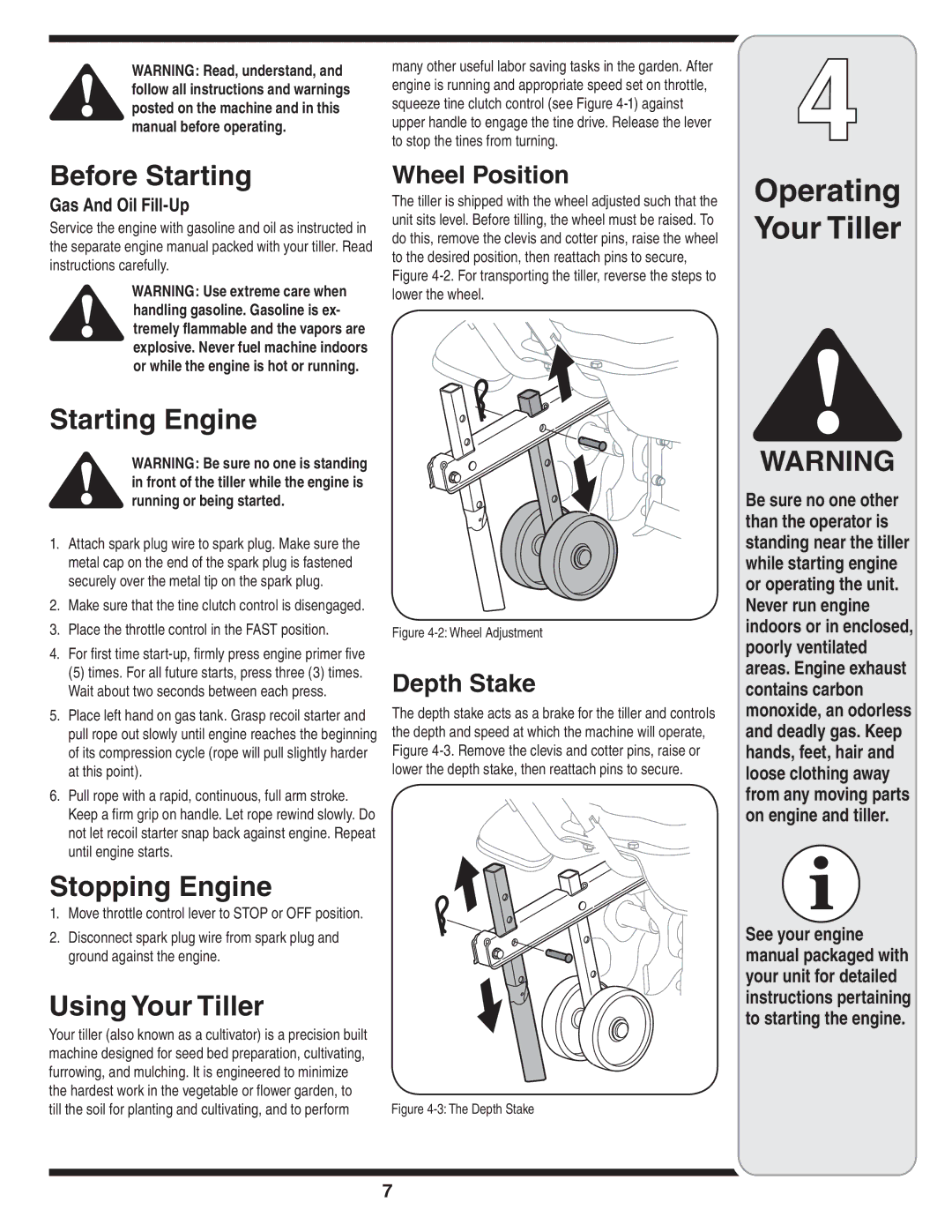
WARNING: Read, understand, and | many other useful labor saving tasks in the garden. After |
follow all instructions and warnings | engine is running and appropriate speed set on throttle, |
posted on the machine and in this | squeeze tine clutch control (see Figure |
manual before operating. | upper handle to engage the tine drive. Release the lever |
| to stop the tines from turning. |
4
Before Starting
Gas And Oil Fill-Up
Service the engine with gasoline and oil as instructed in the separate engine manual packed with your tiller. Read instructions carefully.
WARNING: Use extreme care when handling gasoline. Gasoline is ex- tremely flammable and the vapors are explosive. Never fuel machine indoors or while the engine is hot or running.
Starting Engine
WARNING: Be sure no one is standing in front of the tiller while the engine is running or being started.
1.Attach spark plug wire to spark plug. Make sure the metal cap on the end of the spark plug is fastened securely over the metal tip on the spark plug.
2.Make sure that the tine clutch control is disengaged.
3.Place the throttle control in the FAST position.
4.For first time
(5) times. For all future starts, press three (3) times. Wait about two seconds between each press.
5.Place left hand on gas tank. Grasp recoil starter and pull rope out slowly until engine reaches the beginning of its compression cycle (rope will pull slightly harder at this point).
6.Pull rope with a rapid, continuous, full arm stroke. Keep a firm grip on handle. Let rope rewind slowly. Do not let recoil starter snap back against engine. Repeat until engine starts.
Stopping Engine
1.Move throttle control lever to STOP or OFF position.
2.Disconnect spark plug wire from spark plug and ground against the engine.
Using Your Tiller
Your tiller (also known as a cultivator) is a precision built machine designed for seed bed preparation, cultivating, furrowing, and mulching. It is engineered to minimize the hardest work in the vegetable or flower garden, to till the soil for planting and cultivating, and to perform
Wheel Position
The tiller is shipped with the wheel adjusted such that the unit sits level. Before tilling, the wheel must be raised. To do this, remove the clevis and cotter pins, raise the wheel to the desired position, then reattach pins to secure, Figure
Figure 4-2: Wheel Adjustment
Depth Stake
The depth stake acts as a brake for the tiller and controls the depth and speed at which the machine will operate, Figure
Figure 4-3: The Depth Stake
Operating Your Tiller
WARNING
Be sure no one other than the operator is standing near the tiller while starting engine or operating the unit. Never run engine indoors or in enclosed, poorly ventilated areas. Engine exhaust contains carbon monoxide, an odorless and deadly gas. Keep hands, feet, hair and loose clothing away from any moving parts on engine and tiller.
See your engine manual packaged with your unit for detailed instructions pertaining to starting the engine.
7
